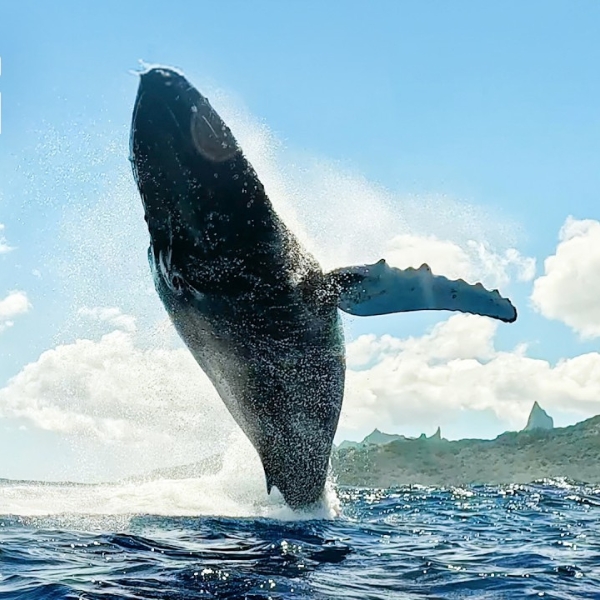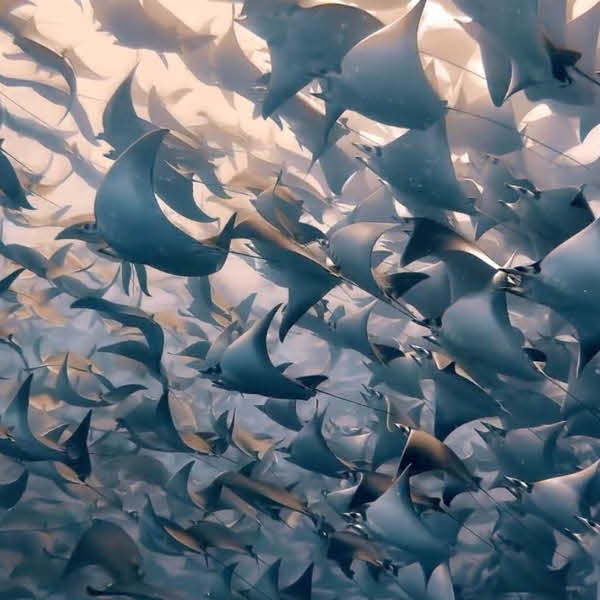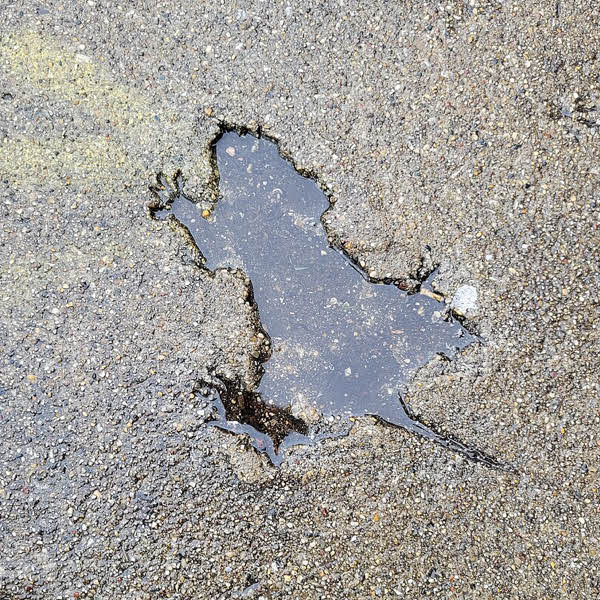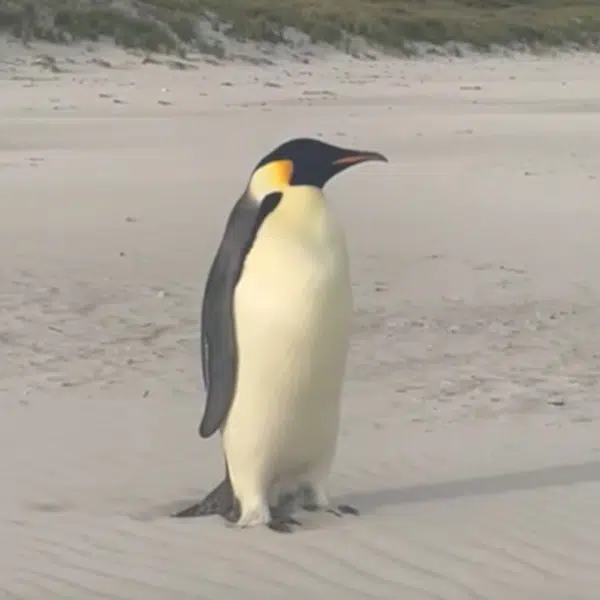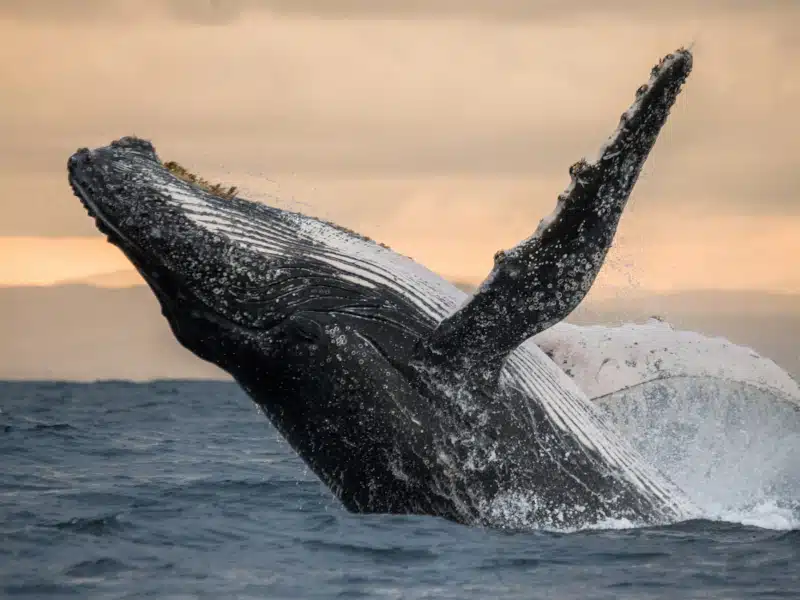
Photo: GUDKOVANDREY/Depositphotos (Not a picture of the actual whale)
Humpback whales are known, among other things, for their lengthy migrations. Much to the surprise of a group of researchers, though, one of these creatures seems to have broken a record. After being spotted in the Pacific Ocean off Colombia in 2017, a male whale popped up near Zanzibar in the Indian Ocean in 2022, making it one of the longest and most unusual whale migrations ever recorded for an individual whale.
The two sightings were reported 8,106.4 miles apart; however, this is the great-circle distance between them—the shortest distance between two points on a sphere. As such, the route taken by the whale may have been significantly longer. The distance is almost twice the typical migration for whales, who travel in a north-south pattern every year from their feeding grounds in cooler waters to their warmer breeding grounds. Instead, this particular whale traveled in an east-west pattern from one breeding area to another.
The researchers have two theories as to what may have prompted the whale to go on this lengthy journey. The first has to do with climate change, as the abundance of the krill they feed on may have been disrupted. The other has to do with mating. Conservation efforts in the Indian Ocean—which not long ago saw up to 99% of their humpback whales be hunted and killed—has led to new thriving communities of young whales. There may have been heightening competition for mates in the whale's old neighborhood, inspiring it to look for a mating partner in another area.
“While actual reasons are unknown, amongst the drivers there might be global changes in the climate, extreme environmental events (that are more frequent nowadays), and evolutionary mechanisms of the species,” Ekaterina Kalashnikova of the Tanzania Cetaceans Program, co-author of the study, told the BBC. The scientist added that the feat was “truly impressive and unusual even for this highly migratory species.”
Pondering about how this whale may have been perceived in his new community, co-author Ted Cheeseman told The Guardian, “When he showed up, was it like, ‘Oooh, sexy foreigner with a cool accent’?” The researcher also shared with CNN that humpback whales navigate with remarkable precision. And since this one is a full-grown whale, it’s unlikely he could have simply gotten lost.
The findings, published in the journal Royal Society Open Science, was made possible by Happy Whale, an observation platform where researchers and amateur whale watchers submit thousands of photographs of the creatures they spot, helping scientists keep track of them. Using a technology similar to facial recognition, researchers can identify the whales by the patterns on their flukes (tails)—an identifier so unique that have long been compared to human fingerprints.
Ultimately, beyond the shock caused by the globetrotting whale, these resources will help scientists better understand whale behavior, especially in the face of challenging conditions due to global warming. “There is no humpback whale in the world that lives only within one nation’s waters,” Cheeseman told The New York Times. “These are international waters and multinational waters, and we need to, as researchers and as a community who care about the oceans, we need to manage them accordingly. We need to protect them as international and connected waters.”
Sources: Interbreeding area movement of an adult humpback whale between the east Pacific Ocean and southwest Indian Ocean; Whale makes epic migration, astonishing scientists; Humpback whale makes record journey of more than 13,000km from South America to Africa; Male humpback whale makes record-breaking migration; Humpback Whale Sets Record for How Far It Traveled
Related Articles:
Up-Close Photos of Whale Eyes and Other Intimate Images by a Photographer Living at Sea [Interview]
Humpback Whale Breaches During Paris 2024 Olympics Surfing Semifinals in Tahiti
Watch the Nerve-Wracking Moment a Whale Capsizes a Boat off the Coast of New Hampshire
Sperm Whales Vocalize a Phoenetic Alphabet Hauntingly Like Humans
















































































